On Nov. 16, 2019, China’s first corpus studies and applications institute was inaugurated in Shanghai International Studies University (SISU) . After the opening ceremony, a symposium on corpus and interdisciplinary studies was held. Over 130 experts and scholars from universities and organizations of the UK, Singapore, Hong Kong, Macao and China attended the meeting.
In recent years, corpus has been more and more widely applied to the studies of humanities, social sciences and natural sciences, especially in linguistics, literary studies, translation studies, public opinion and sentiment researches, area studies, medicine and artificial intelligence. To advance the use of corpora in different areas, SISU established Institute of Corpus Studies and Applications (ICSA), a University level institution, amid its efforts for institutional innovation. The establishment of the institute is also an active response to the rapid development of artificial intelligence in the age of big data, laying a solid foundation for the sustainable development of the corpus researches and application in universities and other sectors in China.
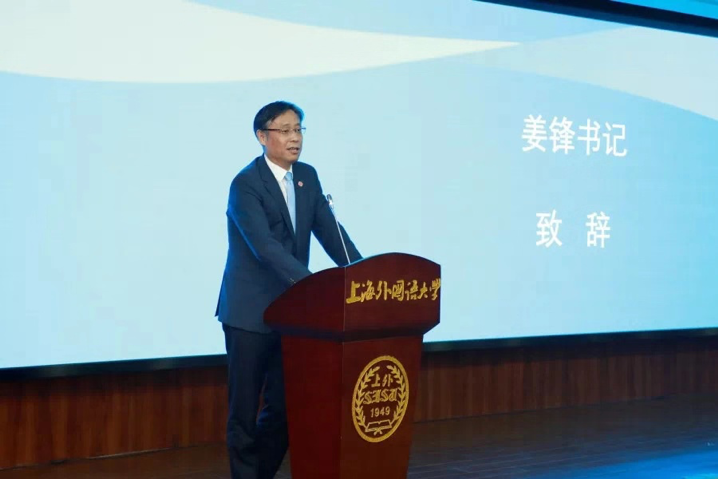
Jiang Feng, Council Chair of SISU, pointed out at the unveiling ceremony that the combination of technology and humanities is a pivotal starting point for the future development of SISU. The university has long been committed to cultivating excellent traditional language and translation talents. It also follows closely AI developments in such fields as neurolinguistics, corpus linguistics, computational linguistics and language intelligence. ICSA will facilitate resource pooling of the university, enabling resource integration across different disciplines and thus better serving the talent training and social development.”
Professor Huang Youyi, former deputy director of China Foreign Languages Publishing Administration (CFLPA) and director of China National Committee for Translation and Interpreting Education (CNCTIE), commented that we are facing new challenges in international communications, as the current international situation is undergoing great changes. For achieving translation practice and translation demands, the building of multi-disciplinary corpus is both necessary and urgent. The establishment of SISU ICSA is a significant event in the field of translation and interpreting education, marking a new step SISU has taken to confront the challenges in a new translation era.
Professor Xu Jun, convener of the Foreign Languages Discipline of the State Council Disciplinary Review Group and senior professor of liberal arts at Zhejiang University, stated that the establishment of ICSA is in line with the current trends of international academic research and the mission of national development strategies. It not only focuses on cultivating talents for the society but also lays equal stress on both basic research and applied research byusing CEEUSRO mode.
Wang Kefei, member of the Disciplinary Review Group of the State Council and chair professor at Beijing Foreign Studies University (BFSU), noted in his speech that this is an era that requires corpus and produces corpus. The application of corpus opens up a whole new world for language and translation researchers. The establishment of SISU ICSA is a landmark in this era of informatization and digitization.
Li Yuming, former CPC secretary of Beijing Language and Culture University and chairman of China Association for Lexicography remarked that in the era of 5G and language intelligence, anyone who owns good database may command the field. Corpora comprise the most important part of artificial intelligence, and they should not only be built for universities, language researchers/studies and the society at large, but also for the future development of machine translation and talent training.
Ye Xingguo, former vice president of Shanghai University of International Business and Economics and chairman of the Shanghai International Studies Association, indicated that currently, the merging of automation, information and intelligence will inevitably have a profound impact on foreign language education and research and many other fields, even all social sciences. The establishment of ICSA conforms to the trend of information technology, and will promote the growth of new liberal arts and Chinese school of foreign language teaching.
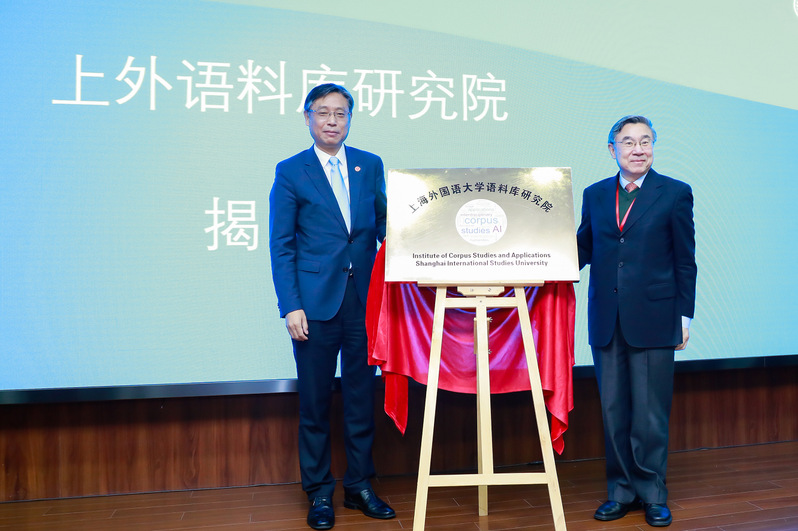
Feng Qinghua (right), Chairman of the Advisory Board of SISU CRI, presides over the unveiling ceremony
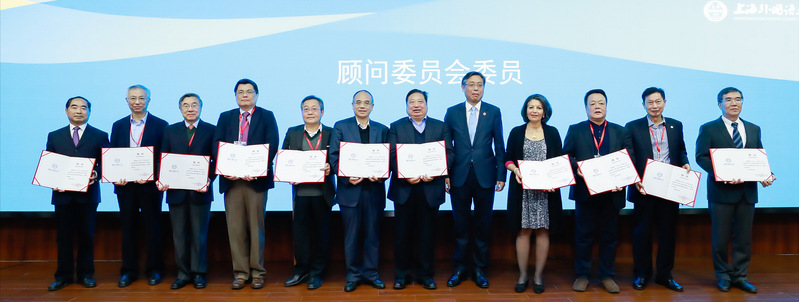
Jiang Feng awards offer letter to the members of the advisory committee of SISU CRI
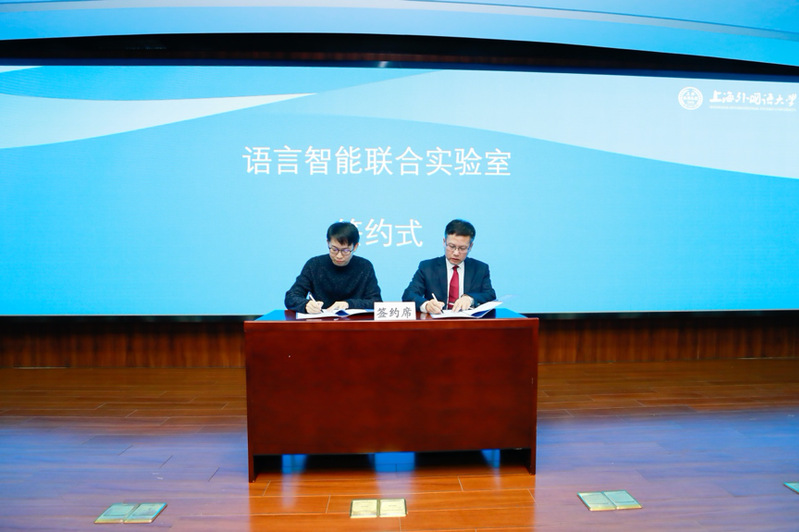
Later, CRI signed agreements respectively with Hejin Technology Co., Ltd. And Shanghai Foreign Language Education Press on jointly building a linguistic intelligence laboratory and co-publishing the journal, Corpus and Linguistic Culture. At the same time, the website as well as indexing and application platform of CRI were released.
According to Hu Kaibao, dean of SISU CRI, the team of CRI is composed of experts from various studies, including corpus translation, corpus linguistics and computer linguistics, computer science and linguistic intelligence. This expert team will be committed to the infrastructure construction, including “Belt and Road” multilingual parallel corpus, multilingual corpus for areas studies, corpus construction platform, corpus indexing and application platform, linguistic intelligence lab and digital humanity lab. “CRI will make every effort to promote interdisciplinary research based on corpus, promote CEEUSRO mode in corpus construction and application, cultivate more high- skilled talents in language data development and application,” Hu added.
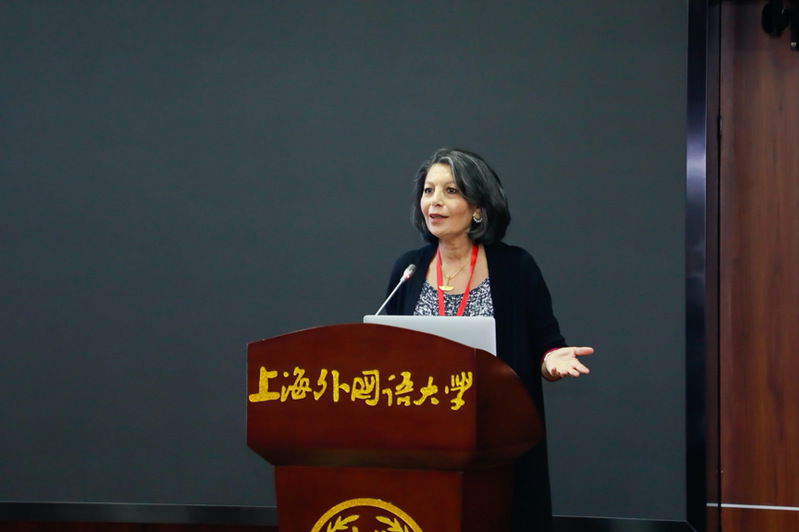
During the keynote speech session, Mona Baker of the University of Manchester elaborated how to apply corpus technology into studying the spreading process of core concepts of western civilization in different cultural systems. Huang Juren of Hong Kong Polytechnic University recalled the development of corpus in China over the past 30 years. He reminded us that corpus linguistics has already closely combined with data analysis. It is safe to say that for any subjects, Chinese corpus linguistics is needed wherever Chinese texts need to be processed or the content is in Chinese. Based on deep leaning mode, Liang Maochen, rofessor from Bei Hang University conducted a study by applying Doc2vec technology to automatically score more than 10,000 pieces of translation works for Han Suyin International Translation Contest. It turned out that the auto-score evaluation is highly reliable, which will greatly decrease the workloads if it is used to assist human scoring.
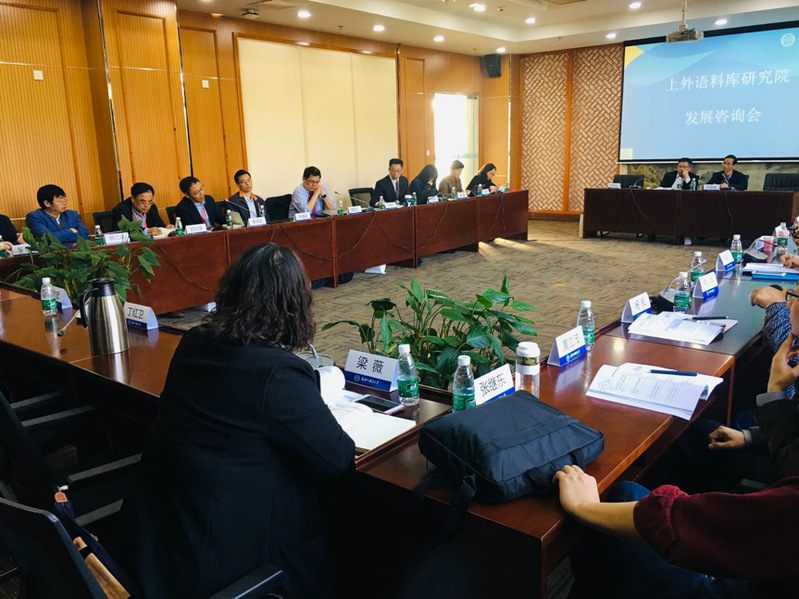
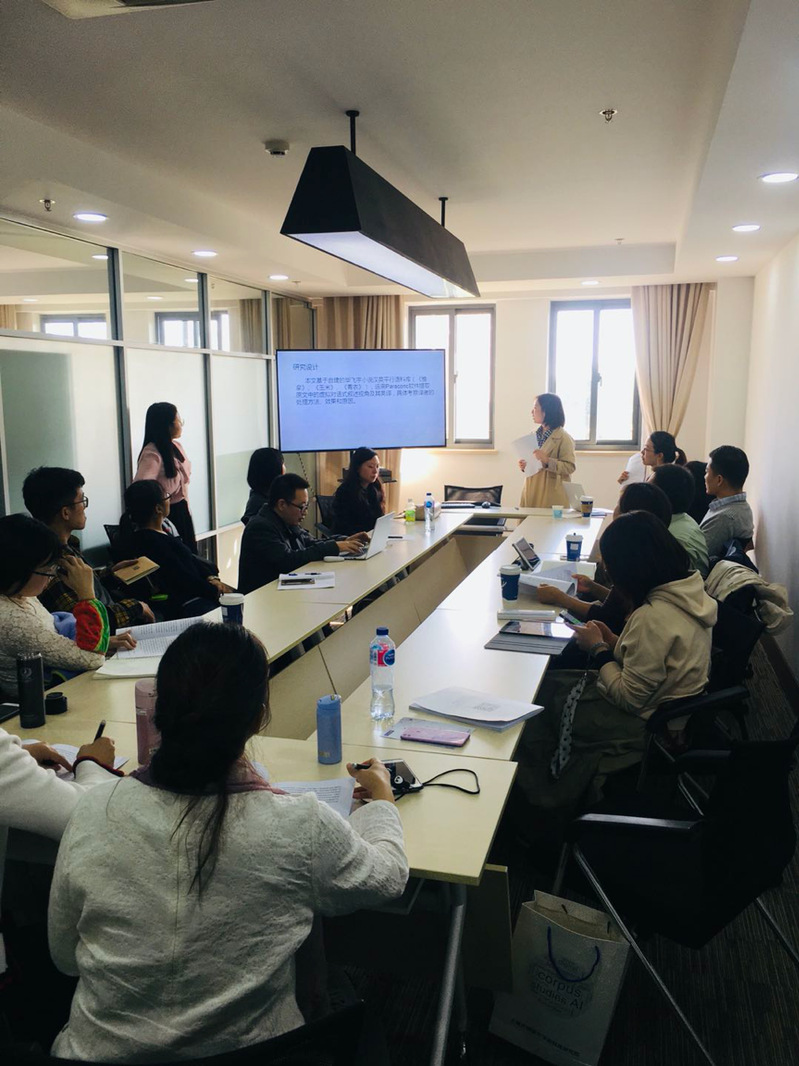
The following academic seminar focused on the topic of corpus and interdisciplinary research, including six parts: corpus and linguistic studies, corpus and literary studies, corpus and translation studies, corpus and social science studies, and corpus and artificial intelligence.


 Back
Back

 Office Hour: 9:00-17:00
Office Hour: 9:00-17:00 Office: +86-21-67705180
Office: +86-21-67705180 Email: 2020215@shisu.edu.cn
Email: 2020215@shisu.edu.cn







